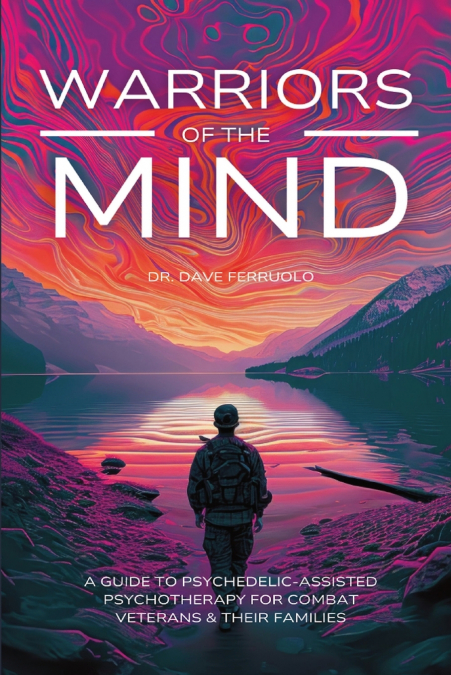
 Librería Perelló (Valencia)
Librería Perelló (Valencia)
 Librería Aciertas (Toledo)
Librería Aciertas (Toledo)
 El AlmaZen del Alquimista (Sevilla)
El AlmaZen del Alquimista (Sevilla)
 Librería Elías (Asturias)
Librería Elías (Asturias)
 Librería Kolima (Madrid)
Librería Kolima (Madrid)
 Donde los libros
Donde los libros
 Librería Proteo (Málaga)
Librería Proteo (Málaga)
Warriors of the Mind is meticulous in its presentation, weaving together a multidisciplinary perspective that incorporates medical, psychological, spiritual, and philosophical insights. It argues for a paradigm shift in the treatment of combat veterans, advocating for an approach that is not only empathetic and scientifically grounded but also open to the unconventional pathways to healing offered by psychedelics.Warriors of the Mind presents an intricate exploration of the potential of psychedelic-assisted psychotherapy for combat veterans grappling with post-traumatic stress disorder (PTSD), moral injury, and other mental health challenges. It delves into conventional and alternative therapeutic approaches, highlighting their limitations and the unique advantages offered by psychedelics in fostering profound healing experiences.The narrative begins by setting a profound context, acknowledging the deep psychological scars borne by combat veterans and proposing psychedelics not as a panacea but as a means to access therapeutic realms that conventional therapies often fail to reach. It suggests that psychedelics, under professional guidance, can offer veterans a pathway to confront and integrate traumatic memories in ways traditional therapies cannot, citing empirical evidence supporting the efficacy of substances like psilocybin and MDMA in catalyzing emotional and cognitive transformations.Warriors of the Mind is structured to first provide a comprehensive understanding of the realities of combat and its aftermath, including the physiological, emotional, and cognitive impacts on veterans. It then explores the challenges of reintegration into civilian life, the dynamics within the families of veterans, and the broader societal implications. Warriors of the Mind articulates the profound complexities of mental health issues that veterans face, including PTSD, moral injury, depression, anxiety, and the risk of substance abuse and suicide.Moving beyond diagnosis and symptom management, Warriors of the Mind critically evaluates conventional treatment options like pharmaceutical interventions, Cognitive Behavioral Therapy (CBT), and exposure therapies, among others. It points out their limitations, especially in addressing the holistic needs of combat veterans and in facilitating deep psychological healing. The discussion extends to alternative therapies, underscoring the necessity of integrating these with conventional treatments to offer a more comprehensive approach to healing.In transitioning to the exploration of psychedelics, Warriors of the Mind shifts to a more personal tone, recounting the author’s own experiences with psilocybin, Iboga, and 5-MeO-DMT. These accounts serve as poignant illustrations of the transformative potential of psychedelics, providing insights into their ability to facilitate profound introspection, emotional release, and spiritual enlightenment. The descriptions of these experiences are vivid and detailed, emphasizing the importance of preparation, setting, and professional guidance in navigating the intense and often challenging journeys these substances can precipitate.Overall, Warriors of the Mind serves as a compelling call to action to expand therapeutic horizons for combat veterans. It advocates for a treatment paradigm that is holistic, culturally sensitive, and inclusive of the potential benefits of psychedelic-assisted psychotherapy. By doing so, it aims to provide veterans with the tools and support necessary to navigate their complex healing journeys, ultimately guiding them towards a future where peace and mental fortitude are within reach.